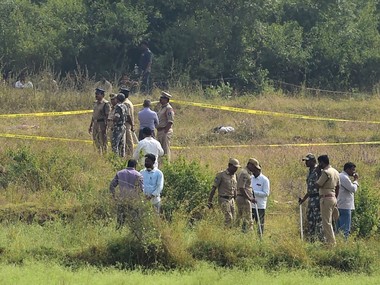On 30 July, 2015, Court No 4 of the Supreme Court of India heard a case till 3 am in the morning. Yakub Memon, one of the accused in the 1993 bomb blast case, sentenced to death, had opted for the last available legal option to escape the gallows. After being convicted by the special TADA Court in 2007 that sentenced him to death, Memon had appealed in the high court and then in the Supreme Court against the TADA court judgment. After both, the High Court and the Supreme Court, upheld his death sentence, he filed numerous reviews, curative and mercy petitions to escape the death penalty. It was after eight years of being convicted by the trial court and after having exhausted all legal options available to him under the law that he was finally executed in 2015. Memon — a dreaded terrorist responsible for depriving hundreds of family of their loved ones — was deprived of his life only after following all procedures established by the law and honouring the due process of law. The fact that all procedures established by law were followed in depriving Memon of his life is a touchstone of constitutional democracy. Contrast this with the killing of all four accused in the rape and murder of woman veterinarian from Telangana, in the police encounter. Four people, who were ‘accused’ — and had not even faced trial, leave alone being convicted by the court of law — were deprived of their life in the most arbitrary fashion, with total disregard of all procedures established by law.
The act of killing someone is, by all means, a crime that “shocks the conscience of the nation”. But, when a similar crime is committed by those who are meant to prevent it, it shocks the legal conscience of the nation.
During the Emergency, which is marked as the ‘darkest hour of Indian democracy’, a host of Opposition leaders and government adversaries were arrested under preventive detention laws. Several people moved the high court under Article 226 of the Constitution and filed habeas corpus petitions, which is considered the bulwark of individual liberty and provides security to individuals against unlawful arrest and detention. While in most of the cases, the high court granted relief to those illegally detained, the Indira Gandhi government adamant on suppressing all dissenting voice appealed in the Supreme Court against the high court orders. The apex court clubbed all those cases together which came to be known as ADM Jabalpur versus Shivakant Shukla or the Habeas Corpus Case. [caption id=“attachment_7750401” align=“alignleft” width=“380”] File image of policemen standing guard at the area where the four accused in the Hyderabad rape-and-murder case were killed. PTI[/caption] As chronicled by Granville Austin in his magnum opus Working in a Democratic Constitution: A History of the Indian Experience, Attorney-General Niren De along with Additional Solicitor-General VP Raman and Advocates-General of Kerala and Maharashtra argued that following the proclamation of Emergency, people lost their right to move the courts for the enforcement of their freedoms under Article 19 along with their Right to Life and Liberty under Article 21 of the Indian Constitution. When asked by Justice HR Khanna (one of the five judges on the bench hearing the case) as to what might an individual redress be if he or she were detained on false information or if the detention order was issued in bad faith or without application of mind, Raman responded, “[I]t could not be known if this were the case because the courts could not examine the ground of detention.” During the arguments, Khanna asked a pertinent question that should be asked by all those who favour ‘on the spot’ justice. He said, “I put it to De that Article 21 pertains not only to liberty, but to life. Supposing some policeman, for reasons of enmity, kills someone would there be a remedy?” De replied, “Consistent with my position, My Lord, not as long as Emergency lasts.” This categorical assertion — that showed complete disregard for individual right to life and liberty by the highest-ranking law officer of the country was the darkest hour of Indian democracy. The Supreme Court, with a majority of four out of five judges on the bench, decided that during an Emergency, “[N]o person has any locus to move any writ petition under Article 226 before a high court for habeas corpus or any other writ or order or direction to challenge the legality of an order of detention.” And for this reason alone, this was the darkest hour of Indian judiciary too with the only redeeming factor being the dissenting opinion of Khanna who held, “The Constitution and the laws of India do not permit life and liberty to be at the mercy of the absolute power of the Executive. What is at stake is the rule of law. The question is whether the law — speaking through the authority of the court — shall be absolutely silenced and rendered mute… detention without trial is an anathema to all those who love personal liberty.” One can only imagine what Khanna would have said about the execution without trial, if he found detention without trial is an anathema to personal liberty. Now, as the Supreme Court decides
to constitute a probe committee headed by former Supreme Court judge Justice VS Sirpurkar to investigate the “extrajudicial killing” of the four rape accused, one can only hope that it sets an example for the police and reiterates the cardinal principle of legal jurisprudence that no lives can be taken without procedure established and due process that the police blatantly ignored in the current case.


)

)
)
)
)
)
)
)
)



